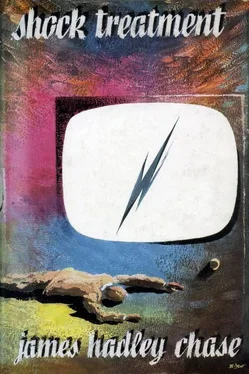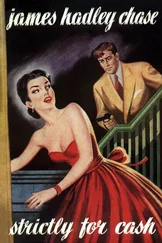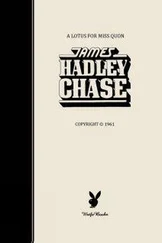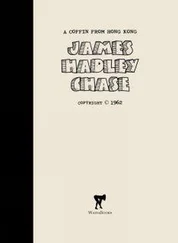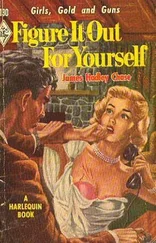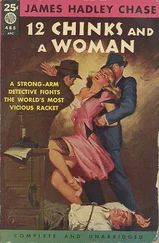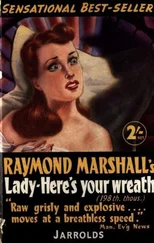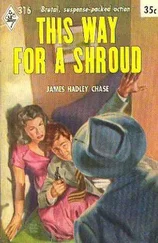The jury were out for two hours.
They were the longest two hours I have ever lived through. When they came back, they all looked at Gilda, and I knew that she was free.
The foreman said they found her not guilty, and there was quite a demonstration in court.
Gilda stood beside Hunt. She was very white, and I could see she was breathing quickly by the rise and fall of her breasts.
When she left the courtroom, she didn’t look in my direction and I hurried after her, but I lost her in the crowd.
As I was pushing my way to the exit, I bumped into Maddox, who grimed at me, his expression wolfish.
“That was a neat trick,” he said. “She was lucky. Well, she didn’t get my money, and that’s what I care most about.”
Lowson Hunt joined him.
“This time you were wrong,” he said, his thin face showing his triumph. “I knew I’d get her off.”
“Wrong?” Maddox said. “She was saved by a trick. I’ll say I wasn’t wrong! She’s as guilty as hell!”
Leaving Hunt staring after him, Maddox walked down the steps to where his car was waiting.
I had had a letter from the radio engineering firm in Miami who said that they could fit me into their organization.
Although the money they offered was lower than I had been earning on my own, I had decided to take the job as it would get me out of California, and it would give me a living until I could look around for something better.
It was my great hope and my wish that Gilda would come with me. I had no idea where she was staying in Los Angeles. As soon as I got back to my cabin, I called George Macklin and asked him where I could find her.
He was abruptly hostile.
“I can’t give you Mrs Delaney’s address. She left a few hours ago for New York. If you care to write to her, I will have the letter forwarded to her.”
This news that Gilda had gone to New York was a real jolt to me until I realized that she probably was trying to escape all the publicity and the newspaper men, and when she knew of my plans, she would join me.
I said I would write.
When I sat down to write the letter, I found the task harder than I had imagined. There was so much I wanted to say to her and so much I wanted to explain.
I told her I was going to Miami and I gave her my address there. I explained about the job. I said I loved her; that I wanted her to join me and I wanted us to start a new life together. I said I hoped she would feel she could love me again now that she knew I hadn’t been responsible for Delaney’s death. I asked her to write me in Miami, saying she was going to join me.
On my way down to the station to take the train to Miami, I left the letter at Macklin’s office.
I settled down quickly in Miami. I had a two-room apartment, and I worked hard, but there was no joy in life for me, for I didn’t hear from Gilda. I wrote again to her and sent the letter to Macklin. He didn’t bother to acknowledge it.
Every time the postman came, I rushed to the door, hoping that a letter would be there from her. Every time the telephone bell rang I had the same sensation, hoping that she was calling from New York to say she had decided to join me.
But she didn’t write and she didn’t call, and after three months, I realized I had lost her. That was the time I really suffered for what I had done. I loved her, and to lose a woman one loves is something a lot worse than pain.
After a year, the ache had gone, but I still thought of her. By this time I was in charge of the department dealing with custom-made radio sets and I was making a reasonable living.
Fifteen months after the trial, fifteen months of not hearing a word from her, I was called to the boss’s office, and he asked me how I would like to open a branch shop in New York, selling discs and custom-made sets.
It was a chance I wasn’t likely to refuse. At the end of the month, I packed my things, left a forwarding address with the woman who had an apartment next to mine and flew up to New York.
Here at last, I told myself, I was within reach of Gilda. Even after those long, dreary fifteen months, I was still in love with her and continually thought of her. If I were lucky enough to meet her, I still hoped to be able to persuade her to marry me.
It was an odd sensation to find myself living in the same city as she and never knowing if I Would run into her. It brought back the ache in my heart.
Then one day, fate or whatever you like to call it, took a hand.
A customer of mine who came to the shop pretty often to buy Long Play records decided one afternoon he would like to buy a custom-made radiogram.
His name was Henry Fuller. He was short and fat, and nearly seventy as made no difference. He was rich. I could tell that by his clothes, his manner and the chauffeur-driven Cadillac, so when he began to talk about a custom-made set, I knew I was heading for a big order.
I told him what I could build for him, and I didn’t cut my corners. I said the best thing, if he were interested, was for me to come out to his place and look at the room and find out what the acoustics were like.
“You do that, Regan,” he said, and I could see he was pleased. He was the kind of man who expected service and didn’t care what he paid for it. “You run out this afternoon. I won’t be there; but my wife will. I’ll tell her you are coming.”
Because it was the rule of the firm to make sure of the customer’s rating before building expensive sets, I called the Credit Investigation people and asked for a report on Fuller.
They told me he was a first-class risk. He was a stockbroker and worth at least four million dollars. He had a swank apartment on Riverside Drive. He had been married three times, and he had married his third wife only six months ago.
Fuller’s apartment was a penthouse job with a magnificent roof garden and a splendid view over the City.
The wrought-iron front door was opened by an English butler who looked as if he had stepped out of the movies.
He took me into a lounge that was every inch of forty feet long. The decor was typically eighteenth century in style, extremely elegant, and the walls were panelled with carved pine. A quiet, luxurious richness brooded over the room that was set off by two big Italian Renaissance paintings that looked good enough to be genuine.
The butler left me in the lounge and crossed the hall into another room.
I heard him say, “The person, madam, is here about the radio.”
A woman said, “All right, Harkness, I’ll see him,” and the butler went away.
The sound of the woman’s voice sent a creepy sensation through me.
Then Gilda came into the room.
She stopped abruptly and stared at me.
She was wearing a bottle-green dress with leather tags at the collar and pockets: a simple thing, but its cut shouted its price.
Her bronze-coloured hair was now piled high on the top of her beautifully shaped head. Her make-up was flawless. Around one of her wrists was a heavy gold bangle set with semi-precious stones. She looked wonderful.
For perhaps a second, bewilderment, fear and then anger chased across her face. Then she recovered herself, and her face became expressionless and wooden.
“What are you doing here?” she asked as she moved into the room, carefully shutting the door behind her.
“Gilda! I’ve been looking every place for you! Didn’t you get my letters?”
The sight of her set my heart thumping and I started towards her.
“Keep away from me!”
The tone in her voice brought me to a standstill as if I had run into a brick wall.
“Why didn’t you write, Gilda? I’ve been waiting and hoping...” I stopped as I saw her eyes travelling over me critically and contemptuously.
Читать дальше
